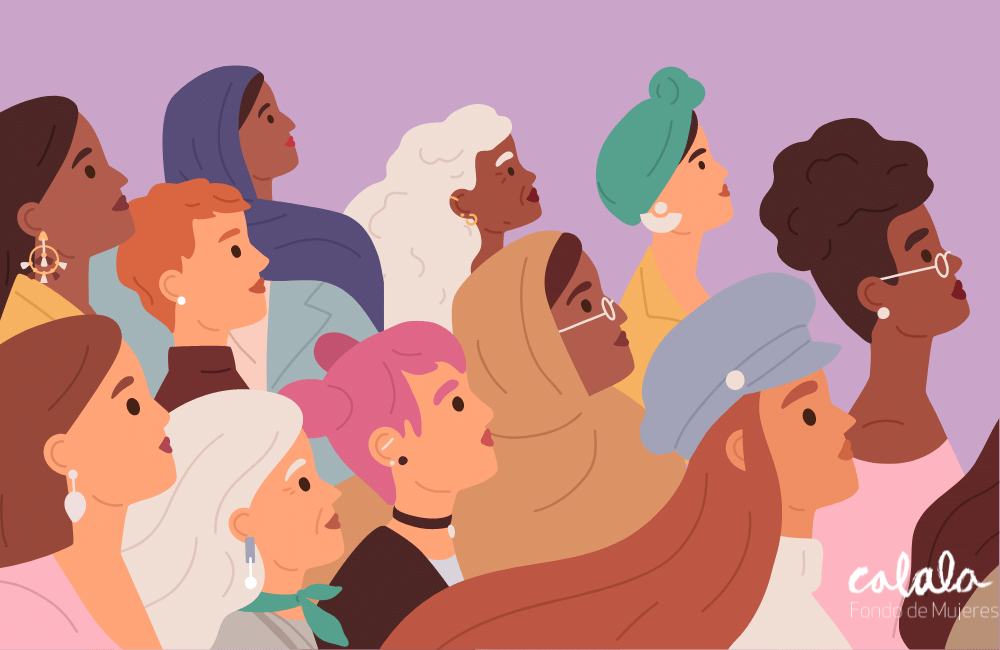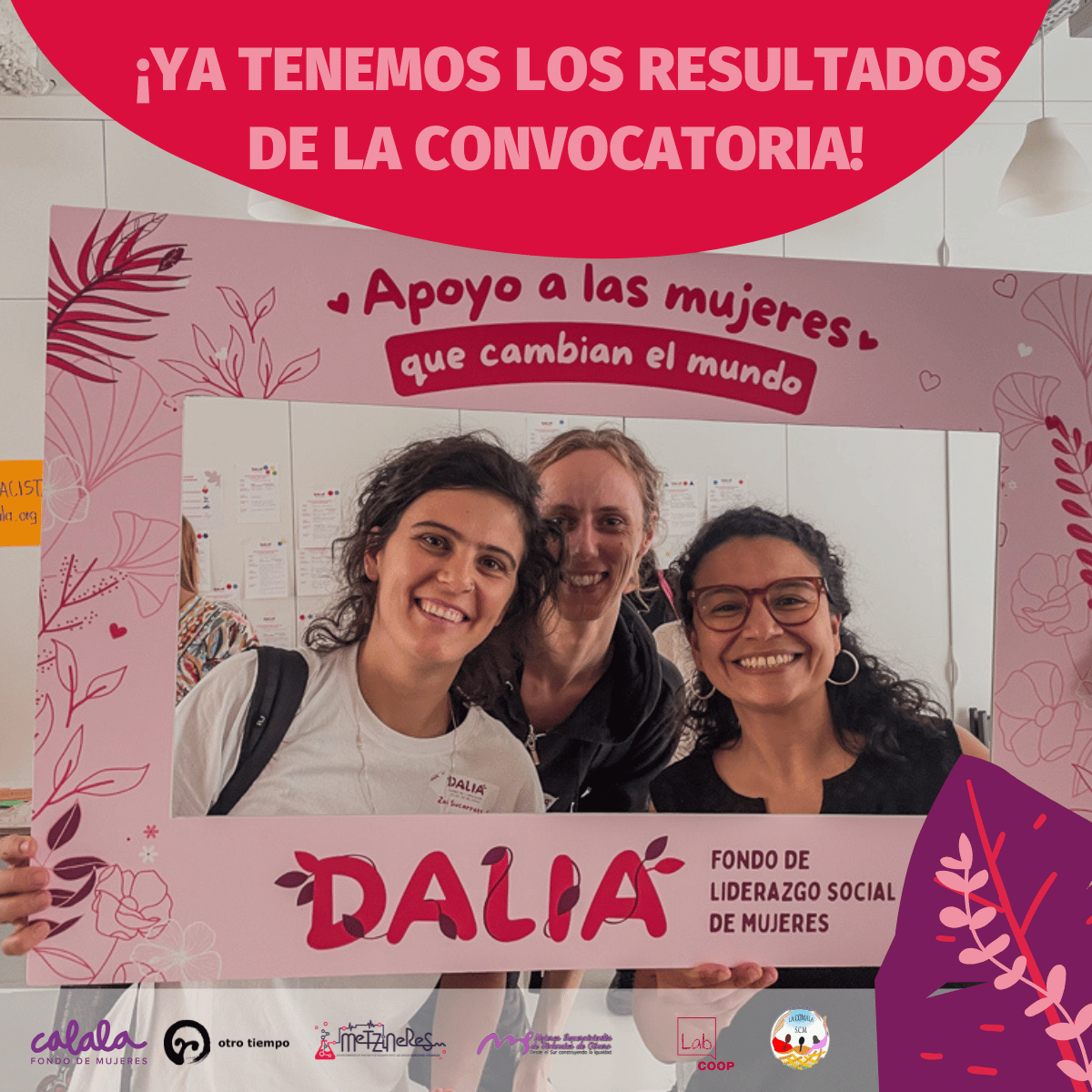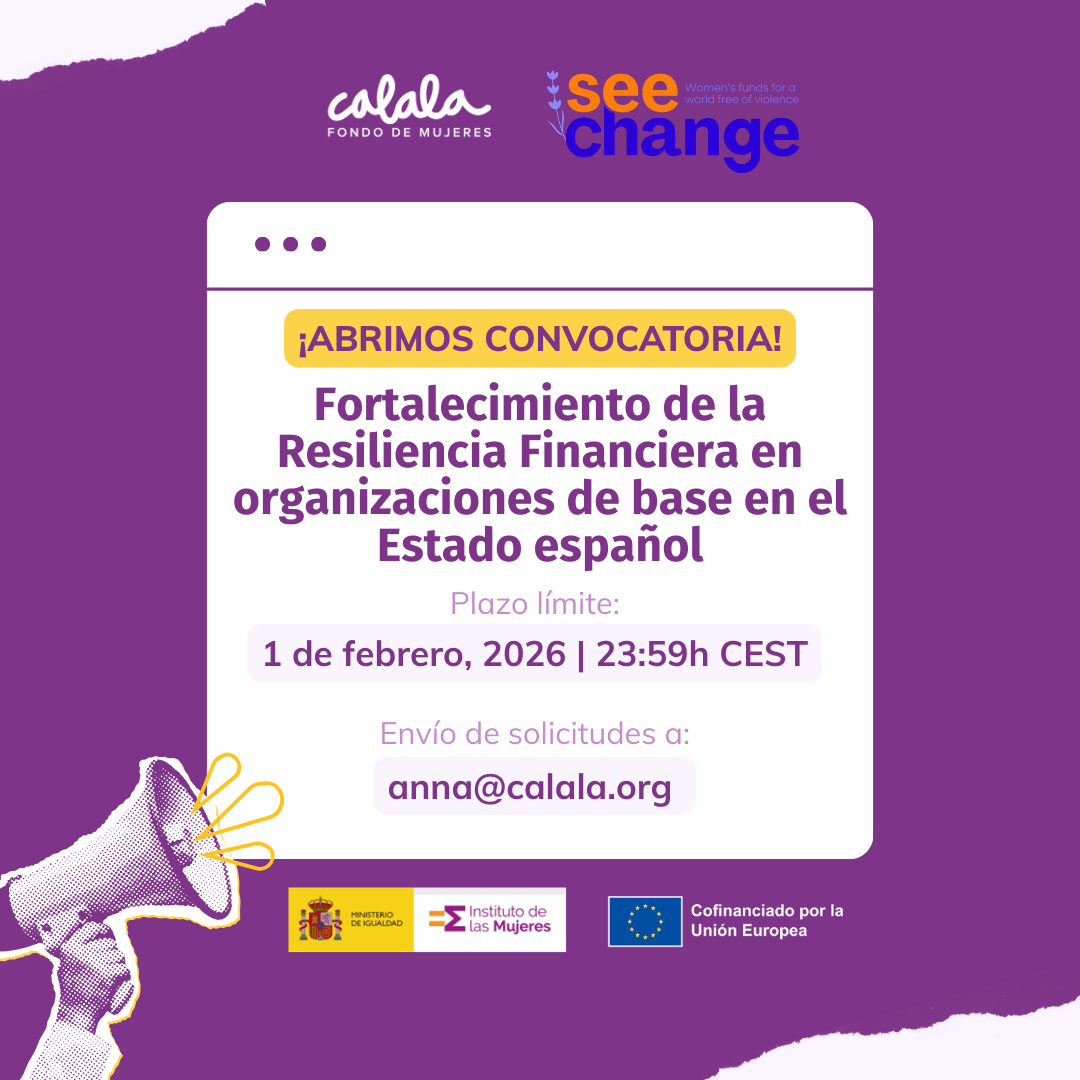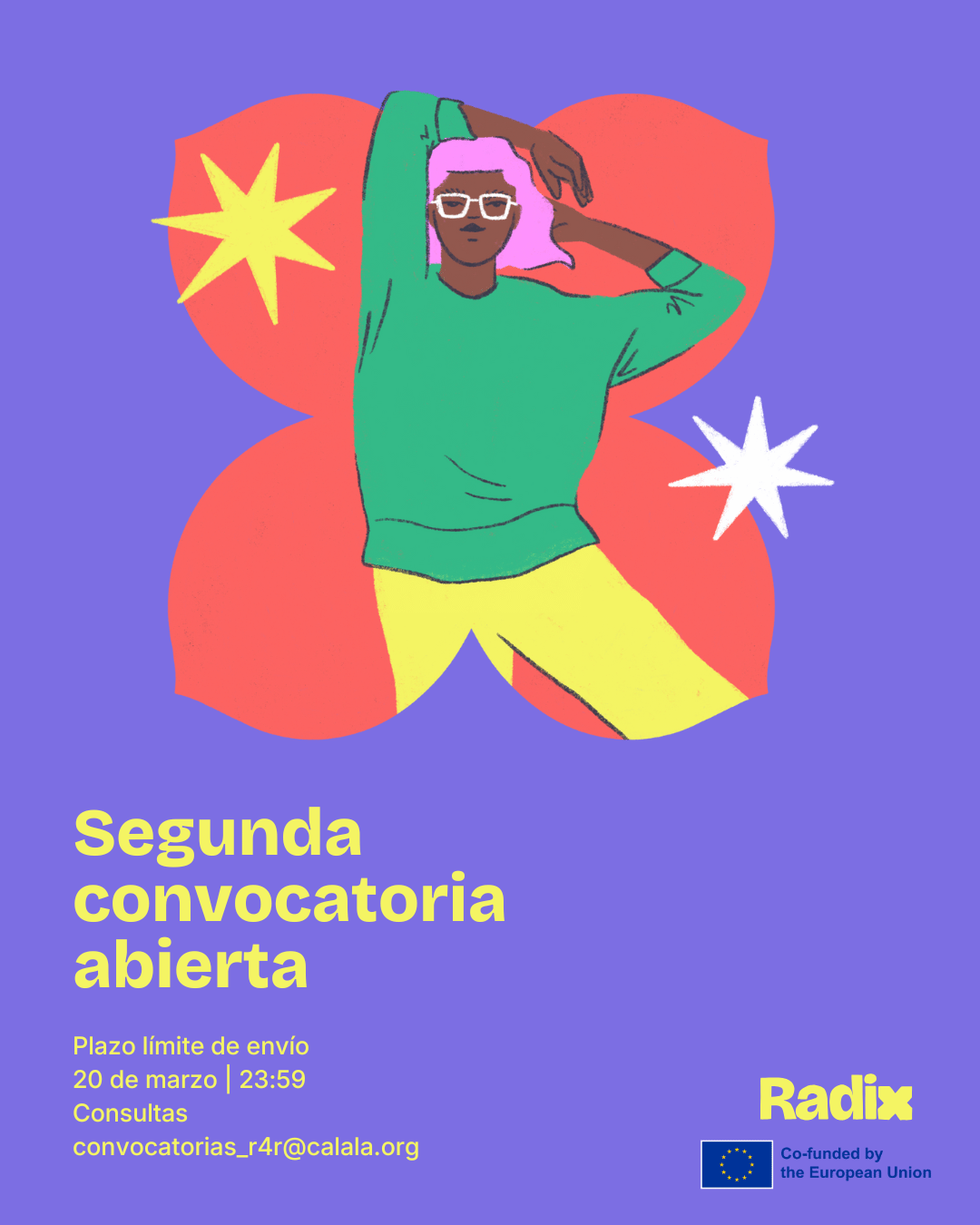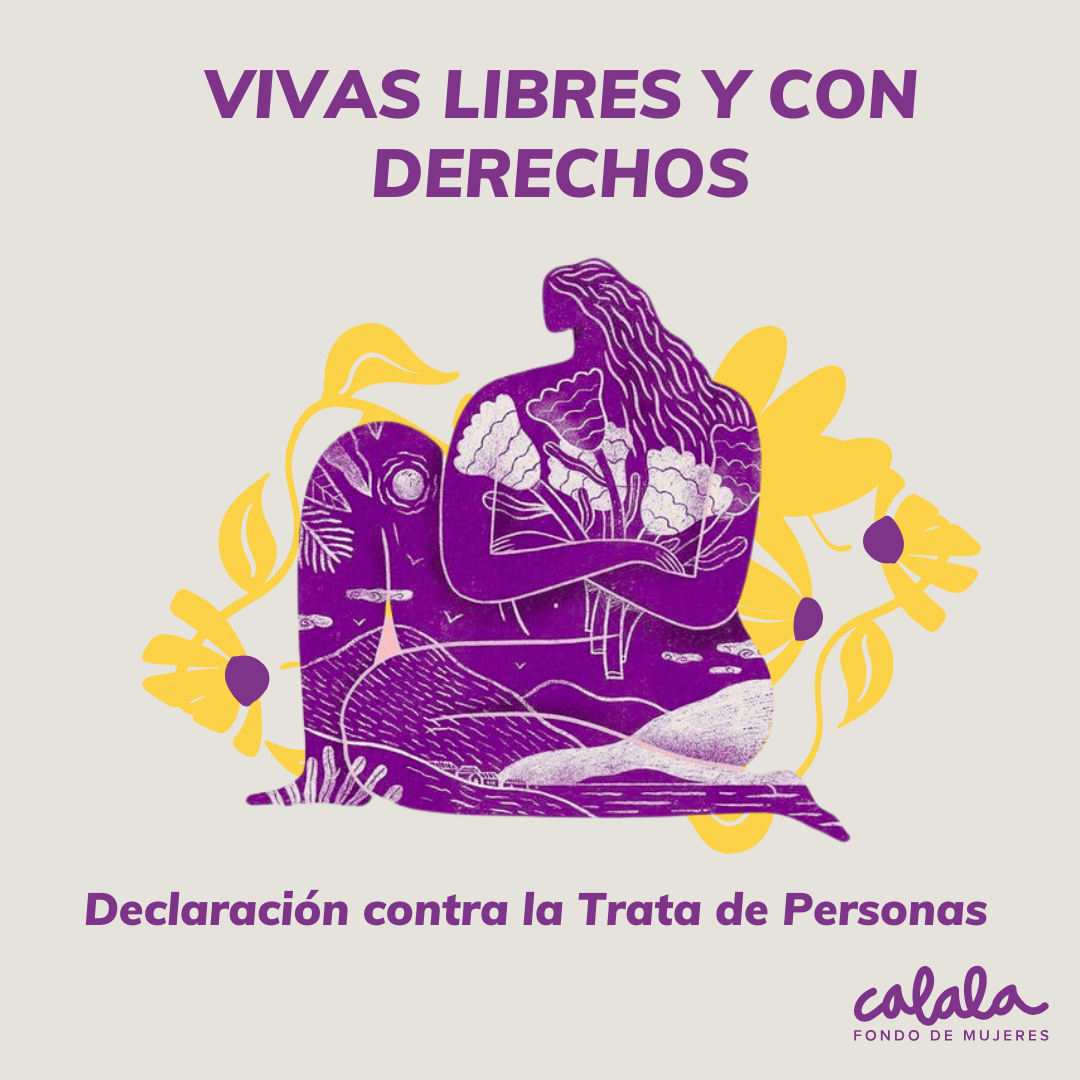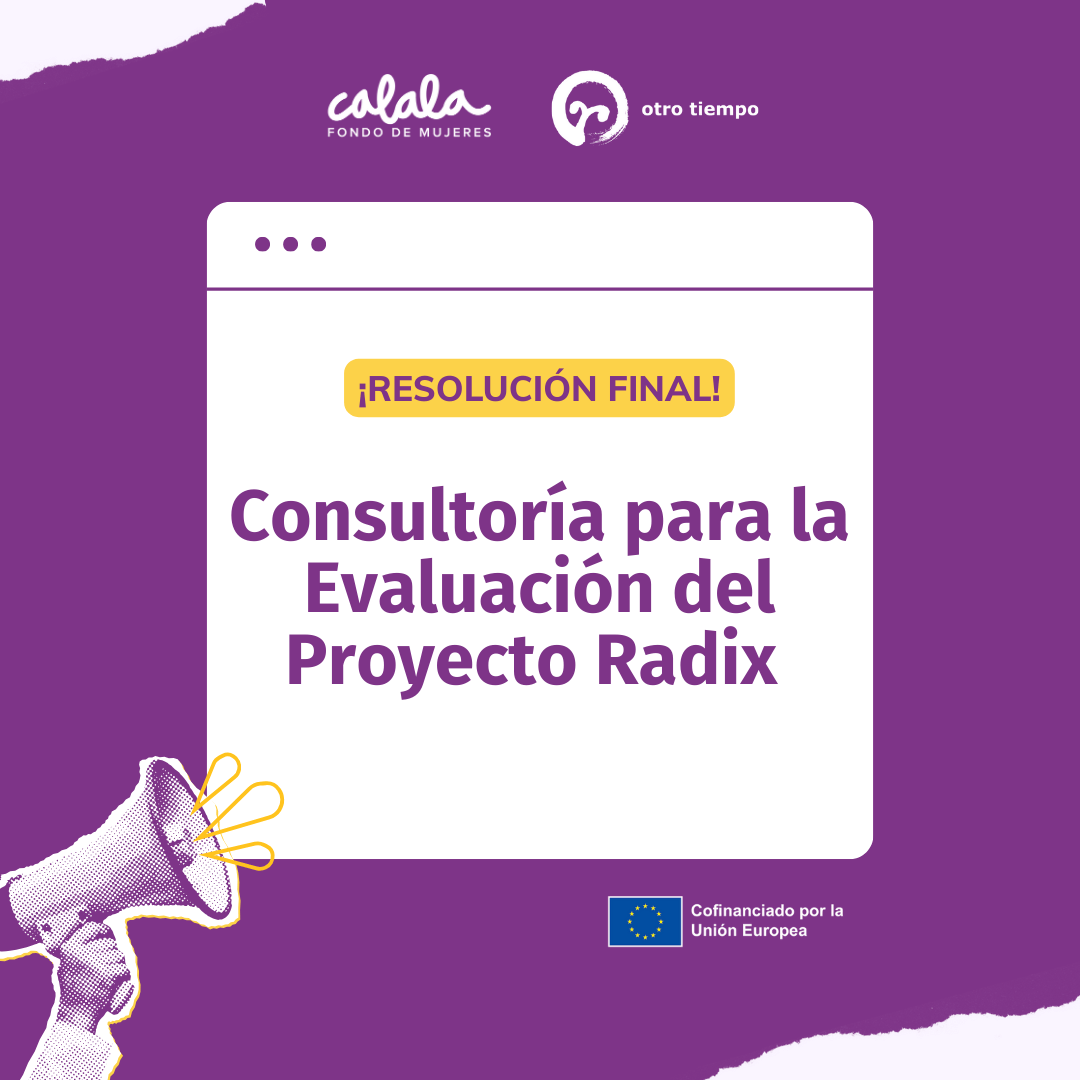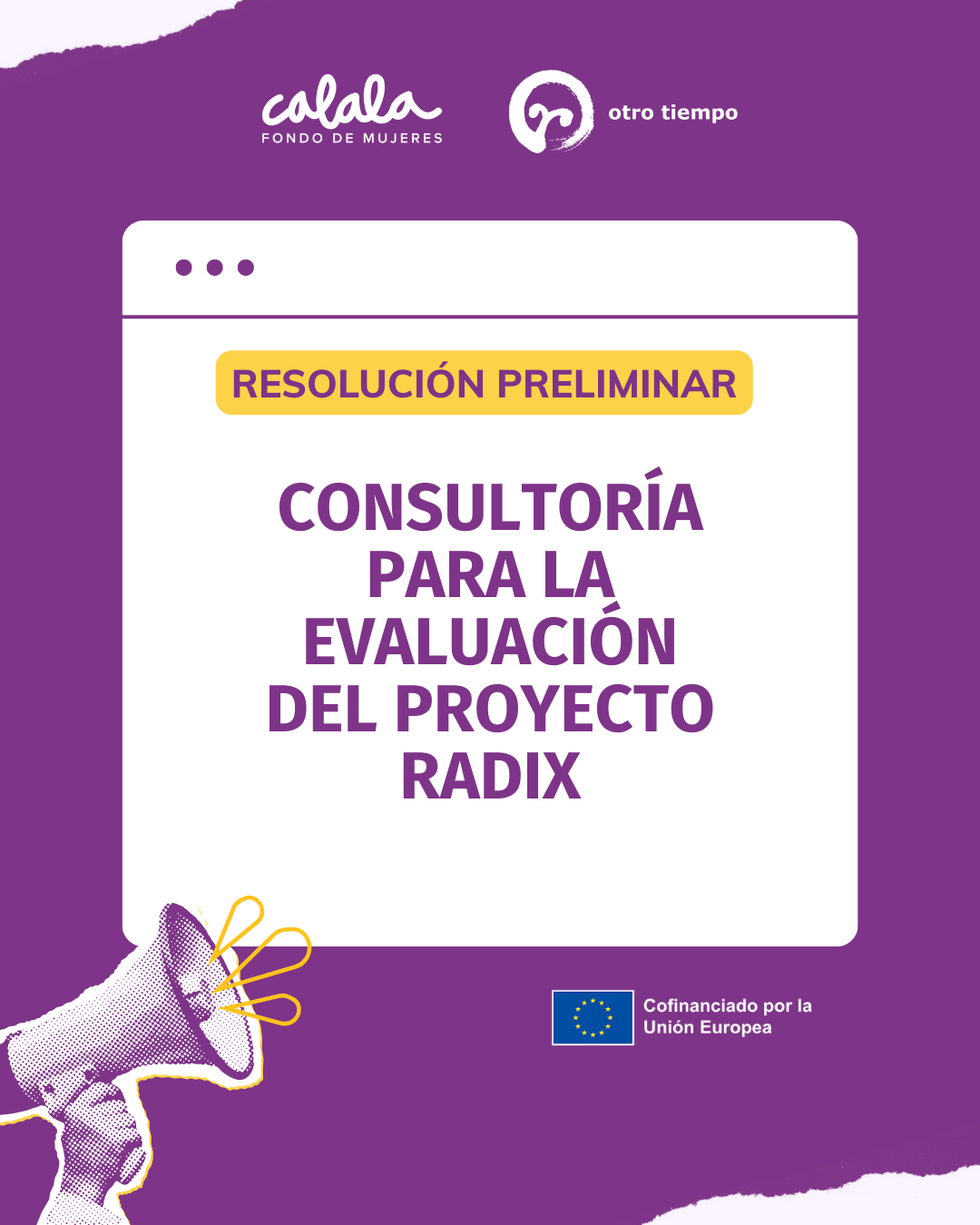By: Marga Morales and Fiona Montagud
In late 2019, we began to think seriously about the power relations in our work, both in our relationship with the groups and organisations we support and within the team. Some critiques from the migrant and racialised women we were supporting at the time were an eye-opener. We decided that anti-racism should not be left as a matter of individual choice. for our staff. Therefore, we initiated a process to integrate a decolonial perspective into our way of working.
In 2020 the whole team started a training process on decolonial perspectives and anti-racist feminisms, and we carried out a diagnosis to analyse five areas within Calala from a decolonial perspective: political will, organisational composition and structure, technical competencies, organisational culture and monitoring.
Considering the results, in 2021 we developed a Work Plan with the next steps to integrate this perspective into our organisation.
These actions are helping us to incorporate new perspectives into our formal policies, to move towards a more horizontal structure, to strengthen our individual and organisational capacities to sustain decolonial action, to make this perspective a shared responsibility that is central to our organisational ethos and to have ways of seeing if we are on the right track.
We know that more and more actors in the philanthropy sector are developing their own processes or evaluating whether they want to take similar steps. So, as part of the team, we would like to share what we have learned so far, knowing that we have only started the journey.
Undertaking such a process is a big decision for any funder. We have to take into account an ethic of flexibility to be open to change; a strong principle of reparation, understanding the place we occupy in power relations. And above all to be brave enough to dare to break the mould. We need to reflect all the time on how injustice works on a global level, accepting history from a place of humility and assuming the privileges we have.
The decolonial perspective has taught us that knowledge is shared and created in community. Great ideas are always collective and come from the art of listening. In our learning process, it has been key to establish a horizontal and trusting dialogue with the collectives we support, led by women with lived experience. We are confident that an honest conversation has been made possible by the diversity within our own team.
As our team began to grow, we made a conscious decision to building an organisation with people from different backgrounds, life experiences and sexual orientations. This plurality gives us critical points of view, different ways of doing things, different rhythms. The result is a beautiful creativity in what we do. We believe that this policy is something very innovative in the Spanish philanthropic sector.
Philanthropy and cooperation is still a white space. That is why we are committed to opening this space for the groups we work with, so that people with lived experience can participate and contribute their voices and perspectives. We believe this is disruptive, innovative and very pedagogical for the sector itself.
In designing and managing the grants we deliver, we try to escape the corsets of a thematic approach. The hegemonic view is to organise and work thematically. We are now breaking this by looking at what is hegemonic and what is not. This is often difficult because in order to let other traditionally hidden worlds emerge, we have to stop supporting other causes.
One thing we value in our decolonial journey is that we are making space for things that go beyond rational thinking, such as the emotional and spiritual dimensions. Hegemonic culture has taught us to live only in our minds. The decolonial perspective is showing us that not everything is rational, especially when we work with women from oppressed groups. Their wounds are rational, but also emotional. They live with wounds in the way they interpret the world, in their lineages, in their villages and in their everyday experiences. And for many, spirituality is a path to healing.
This is also connected to the relationship we try to establish with the collectives we work with. When we approach them, we listen to them and leave space for them to share beyond the work they are doing with our support. They tell us about their emotions, their spiritualities and their vision of the world. In doing so, we break our Western perception of time, focusing attention, care, active listening or creativity.
We know that we still have a long way to go and that this process is not without its challenges. But we are deeply committed to continuing to challenge the way we see the world, our own beliefs and the way we act and work. We also know that we are a small grain of sand in the philanthropic sector and that we need many more to join us. We are convinced that for philanthropy to contribute to building a just world, we all need to walk this path together.
This article was originally written in English, by our colleagues Marga Morales y Fiona Montagud and was published in Alliance Magazine.
